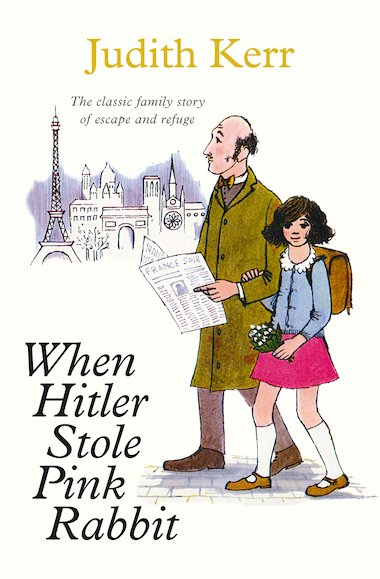

The great consolation of the novel is family: in opposition to the orphan narratives of so much children’s literature, Anna is richly parented – reassured that as long as the four of them remain together, nothing disastrous can happen. But self-pity is impossible when the darkest story of all is befalling the friends back in Germany who thought it was silly to leave. The family teeters on the edge of destitution, dependent on the kindness of strangers. Max and Anna will learn to read English billboards, but their father will never be able to regain the status, income and self-respect that he lost with his native language. As the children grow and adapt, the adults diminish. Underlying this comedic evocation of life on the move is a darker journey. “the last place we stopped was called Bovril.” On arrival in England at night, their train stops, for the umpteenth time, at a small ill-lit station.Īnna spelled out the name on an illuminated sign. “They had mussels instead and it did not matter,” says the third-person narrator, with a default cheerfulness which, for an adult reader, becomes increasingly ironic through the novel. In Paris, Anna’s impractical mother distracts her from a homework crisis by buying her a luxurious, chestnut-filled pastry, a small act of impulsive kindness that means they cannot afford fish for supper. Really Anna should feel honoured.” A few days later Anna sees Max in the village, throwing unripe apples at a girl. “When they’re in love with anyone they throw things at them. “It’s what they do here,” says her brother Max. In Switzerland, Anna is taught to yodel and the boys pelt her with pebbles.

The first is a literal one, in which the problems of temporary lodgings, making new friends and adapting to strange languages and cultures are described with a stoical humour. Though on the surface this is a simple refugee story, seen through the eyes of a small girl, there are really three journeys in Pink Rabbit. It makes me rather sad.”) But soon that life is gone, as first her father and then Anna, her mother and brother flee to Switzerland, then on to France and finally to England. (“You hardly ever hear of two famous people in the same family. We first meet her alter ego, Anna, as a precocious nine-year-old whose only problem appears to be negotiating the consequences of having a famous writer for a father. Published in 1971, When Hitler Stole Pink Rabbit is the first in a trilogy of autobiographical novels that the bestselling author and illustrator wrote to explain her early life to her own children.


 0 kommentar(er)
0 kommentar(er)
